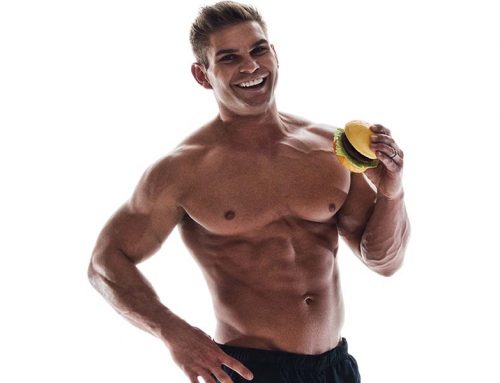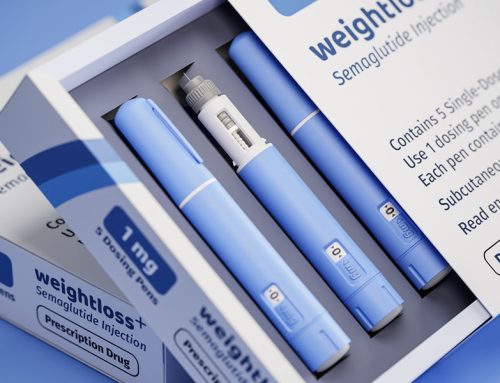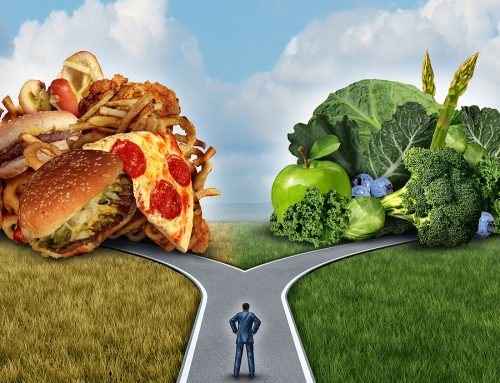QUESTION: Tom, I’ve been reading your stuff for years and I also read a lot of other sites and message board, sincluding some of the low carb boards. I have finally come to the conclusion, both from all my reading and my personal experience, that the idea that one will lose weight just by cutting carbs is a myth. And I welcome anyone who thinks they can to go ahead and try to prove me wrong. I’m not looking for a fight of course, just looking for good information and discussion. Consider the following two situations; each involves an identical male who requires 3,000 calories/day to maintain his current weight.
SITUATION #1: The individual reduces his calories to 2,500/day, which theoretically will result in losing one pound/week. The individual divides his calories so 60% (1500) come from Carb sand the remainder come from Fat and Protein. Will he lose weight even though he’s eating a lot of Carbs? I believe the answer is YES because even though the carbs are high (60%), he is in a calorie deficit.
SITUATION #2 The individual adopts a Low Carb Diet by eating only 25 grams of Carbs daily (100 calories). He then eats an additional 2900 calories of Fat and Protein. Will he lose weight? I believe the answer is NO because even though the carbs are low, he is eating at his maintenance level.
Now, I understand that there are advantages to controlling insulin and reducing Carbs, including some health benefits for some people, but what I often don’t see on the low carb benefit list is the impact that fat has on controlling appetite. I believe that Fat satiates even the largest appetite, causing you to eat less. Therefore, I believe that the reason a Low Carb Diet works is because people who follow it eat fewer calories.
I would love to get your feedback on this Tom and if you or any of your newsletter or blog readers have any studies or information proving me wrong, please let me know. – John in Texas PS. I realize I’m not the first to question a Low Carb diet, so my apologies if this has been discussed in your newsletters or on your blog before.
ANSWER: Thanks for your well-thought out question John. Yes, we’ve discussed this before, but it’s timely and worth discussing again, especially with some of the long-term research that was just published earlier this year.
You are preaching to the choir though, my friend. You are right, fat loss hinges on calories in versus calories out. When low carb diets work for weight loss it’s because they help someone eat in a deficit,.
BUT – and there is a big BUT – we really need to make some distinctions about low carb and high protein so we don’t throw out the baby with the bathwater. Low carb has some advantages. More imortantly, so does high protein.
Heres where most of the confusion comes from in this whole low carb thing:
Are we talking about low carb in a free-living / ad-libitum(non calorie counting) situation, or are we talking about a laboratory-controlled study or a strict calorie-counting situation?
This makes all the difference because in a real world (free-living) scenario, low carb usually beats out high carb for weight loss, especially in the early weeks on the program.
This can be partly explained by water weight and glycogen loss in the intital weeks, but also by actual greater fat loss during the early stages.
However, this is not because of “metabolic advantage” of low carbs over high carbs, or because of insulin, or because of any “magic” in low carbs, it is because subjects in these types of studies ate less in the low carb group.
In other words, low carb diets usually control calorie intake better, when you’re not counting calories (you get “automatic” calorie control, provided you’re not a totally unrestrained eater, of course).
So you are correct in your conclusion.
Furthermore, it’s difficult to eat too much when you remove an entire group of calorie dense foods (sugars and starches) which are a food group responsible for providing a huge portion of the calories in most people’s diets.
Sure, you can overeat on dietary fat as well, at least in a mixed diet, but apparently not easily in the absence of carbs.
Now, heres the kicker…
As soon as you start controlling calories, I mean hospital ward or research facility controlled, where the subjects cannot pick and choose their own food, and instead, the food is weighed and measured and almost literally spoon fed to the subjects, the difference in weight loss between low carb and high carb shrinks or even vanishes.
In other words, when calories are matched, and protein stays the same, there is little or no difference in fat loss between a high carb and low carb diet, when dietary fats and carbs are the variables manipulated.
In the long term studies, even more valuable data about low carb diets for weight loss has emerged…
The big study by the New England Journal of Medicine that got all that publicity earlier this year confirmed it once again…
Even though low carb diets work better in the short term for weight loss in free living subjects, the advantage decreases by month six, and disappears after a year or two.
The moral of the story is (drumroll please)…
Most people don’t stick with ANY type of diet very well for very long.
And… the extreme low carb diets in particular have lower long term adherence rates and poor long term maintenance rates.
Now, this does not mean that low carb diets do not have benefits. They certainly do, and some of them are health related (which is beyond the scope of this column).
Other benefits are fat loss related…
If you automatically eat less due to appetite suppression and removal of calorie dense foods, that is clearly an advantage, it’s just not the advantage that most low carb advocates suggest.
There is no proof of metabolic advantage purely from restrction of carbs and insulin does not lead to obesity in a cause and effect sense, insulin merely plays a role in the process of partitioning surplus carbs into fat stores or in suppressing fat release.
Insulin is important to manage, but not the deciding factorin whether you lose fat or not.
One change in macronutrients that DOES help fat loss is anincrease in protein. Protein is highly thermogenic – about 30%.
So 30% of the energy in protein is not available for potential fat storage, as it is metabolized just in the digestion process.
So in reality, you could say it’s the higher protein, NOTthe reduced carbs, that provides the real advantage!
Ironically, a low carb diet is NOT always high in protein! Ketogenic low carb diets for example, are actually high in dietary fat, not so much protein. most people don’t realize that. Too much protein is somewhat gluconeogenic and kicks people out of ketosis.
Likewise, a high protein diet is not always low in carbs.Take the 40-40-20 macro split from BFFM (or BFL) for example.40% of calories from protein is very high. And yet 40% carbsis not very low!
The protein-induced thermodynamic advantage is somewhat small,but it’s significant if a large shift in protein intake is madeas is the case with a 30-40% protein program.
For example, the old food pyramid/ traditional dietician-stylediet is 15% protein. Research from the University of WashingtonSchool of Medicine showed that when protein is doubled to 30%(replacing carbs), there is a small but measureable advantageeven when matched calorie for calorie.
In free living studies, the advantage is even larger becauseprotein is a great appetite suppressant and is highly satiating.
In fact, protein NOT FAT, is the most satiating nutrient.
It appears that fat is psychologically satiating, but proteinis the hands down winner as the most satiating, appetite suppressing macronutrient, physiologically speaking.
Thus, a protein with every meal and a 30% (or even higher) ratio of protein is conducive to better fat loss – which incidentally is EXACTLY how the Burn The Fat, Feed The Muscle program is set up.
Theres much more to good nutrition and health than just calories, but ultimately the most important factor is not macro ratios or low carb vs high carb.
When you sort it all out, fat loss all comes down to acalorie deficit in the end.
In my decades of bodybuilding and coaching, I’ve tried it ALL…
I’ve gotten ripped on high carb and I’ve gotten ripped on low carb; thousands of others can testify the same for either side.
What successful approaches have in common is a calorie deficit…AND they are programs you can actually stick with.
I simply believe that if you can get even a slight advantageby bumping up the protein and dropping the carbs, at leasta little, why not take it? So that’s why my bodybuilding-style pre-contest maximum fat loss program is high in protein and low to medium in carbs.
learn more at ====>www.BurnTheFat.com
Train hard and expect success,
Tom Venuto,
Fat loss coach
www.BurnTheFat.com






That is an OUTSTANDING reply. You are clearly worth your pinch of salt. Well done.Cheers.EG
I lost 18 pounds on Atkins so **** you.
Igor, nice mouth (i censored your comment because this is a family website).Perhaps you should read the article next time instead of just the subject line. You might learn somethinghave a nice day.
The message is clear, food is your fuel, if you put more in than what you use , you WILL put weight on, but on the other hand if you eat less than what your body uses you will lose weight.I have over the last 15 months curbed my “guts-ache” mentality to eating more sensibly, I have had significant results. I took a size 107cm pants in December 2007 and knew ihad to do something about it. Since then I have eaten smarter, not following any prescribed diet such as low carb, but simply eating less & exercising more at every opportunity.I now weigh 80 kg. I still have another 10 kg to lose- and i will do it,I will get to and be able to acheive a weight of 69.5 kg AND maintain that just by eating smarter with ALL the stuff i used to eat before but NOT SO MUCH !!I have subscribed to your burn the fat newsletter and blog for sometime now and i have read all your stuff and have realised that once you have the mindset to lose the weight , you will. All you need to do is picture yourself how you want to be and then put it into place.I now take 92 cm pants and THEY are getting too big for me !! WHEN i Get to 69 or 70 kg I will be looking at 87 cm pants, I have`t been in that size since i was eighteen years old ! By the way I turned 50 this year andi haven`t felt better.As I say once the mindset is right the results WILL come.Thank you so much for the Burn the fat newsletter because athough i haven`t always followed your advice completely to the letter It has given me SO much encouragement and ideas it has been a big factor to getting the mindset right.Feel free to using my letter to give others encouragement as this this is only my story , I could be somebody elses.Kind RegardsPaul
The body has a “fourth fuel”, ketones, which are created by the body from fat / protein when there are not a lot of carbs. Ketones circulate in the blood and ketones not used as energy are excreted in urine, for example. If ketones, an energy source, are excreted in urine, then the equivalent amount of energy is not being stored as fat tissue. Therefore, this disproves the purist “calories in, calories out” theory: some energy can be excreted.Now, I don’t know how much energy is being lost in human waste through ketones, but this process does allow one to reconcile a metabolic advantage with low carb diets with the calorie accounting approach to weight loss that Tom recommends.Jeremy
calories in vs calories out is over simplistic only if you leave out the part about not all calories in being metabolizable, or actually available for energy… examples being some of the energy in fiber being unabsorbable and the thermic effect of food, as the protein example I mentioned above.Calories in and out is also an overly simplistic model if you fail to mention nutrient partitioning which is where the calories go when they are stored or where they come from when they are withdrawn from the body.if you clarify not that “a calorie is just a calorie,” but that a “metabolizable calorie is just a calorie” then the truth of the calories in vs calories out equation is apparent. it is not disproven and it is not a theory.If a significant enough amount of energy is excreted while in ketosis, where is the research that quantifies the non-metabolized energy? (hate to be the poor bloke who measures calories in poop!) and if it is quantified, doesnt that prove, rather than disprove the calories in vs out equation. after all, we have now explained the “missing calories” and where they went.also, where is the actual weight loss in laboratory controlled studies, when food is measured (not self reported) that shows greater weight loss on ketogenic vs non ketogenic diets. the data shows the opposite. For example see: Ketogenic low-carbohydrate diets have no metabolic advantage over nonketogenic low-carbohydrate diets http://www.ajcn.org/cgi/content/abstract/83/5/1055My overall point is that low carb diets, especially those that are high in protein, can be effective and have benefits and should not be dismissed. But those benefits and results are not because calories dont count. Low carb diets also need to keep you in a calorie deficit. Why ketogenic diet proponents and low carb extremists still insist that you can lose body fat in a calorie surplus just because carbs are low enough is beyond my comprehension given the amount of data we have available today.
Very well explained. As you mentioned I think long term compliance is critical. I have experimented with low carb and low fat diets. Both suck because you have to restrict favorite foods.Your method at least allows you to enjoy a variety of food without having to be totally restricted.Thanks!Nia
Tom,I agree with your posts on low carbs. 40% is thought of as low carbs in clinical settings. Yet, the mass majority believes that low carbs should be “no carbs”.I also wanted to ask why are the top bodybuilders using “zero carb diets”, to get super lean? I realize that the chemicals help, but if they were clean, the winner’s would still be champions.Do you agree?thanks
Igor,You lost 18 pounds, but it appears you lost more than just that.
Like Igor, I also lost a bunch of weight (65 pounds) on a low-carb diet. However, unlike Igor, I’m not going to berate you with expletives, because I agree with your assessment. I’ve been at a standstill in terms of my weight loss for about 6 months (I have about 20 more pounds to go). It’s clear to me that the low-carb thing isn’t working well now, so I’ve gone back to calorie counting and reintroducing carbs. Things are starting to move in the right direction again, but it’s because a) I am keeping better track of what I’m actually eating, and b) I’m not filling up with empty carbs that are full of calories with no nutrients. Now when I have carbs, it’s Ezekiel break tortillas, or whole-grain bread, or fruit like blueberries or apples. And I’m still keeping my protein/carb ratio higher, but that’s primarily because I’ve lost the taste for a lot of the high-carb foods – I just don’t really like them anymore, and feel like I can spend my calories more wisely elsewhere.
VERY helpful explanation of carbohydrates, protein, and calorie consumption! really put things in perspective
I couldn’t agree more Barry. Once you have kept carbs low for a length of time you just loose any desire to eat high carb low nutrient foods. Eating lots of high protein plus good fats and nutrient dense low carb fruits and vegetables works well for me. But keep up the resistance training people, very important..Alan.
Thanks for the link to the study by Barry Sears (the Zone Diet guy) and co-authors. It leads me to believe any metabolic advantage from excreting ketones must be small. With only 20 participants, it might be hard to detect in the Sears study.Lyle McDonald has a book “The Ketogenic Diet” which claims at most 100 calories can be excreted via ketones. I don’t know the basis for this claim.
Consider what your body’s main source of energy is and where it comes from. That answer is simple it comes from carbohydrates. Carbohydrates and proteins also produce 4 calories per gram, where as fat produces 9 calories per gram. What this means is that its going to take more “energy” to digest or breakdown those molecules. But when on a low carb diet, the fat and protein is stressed a lot more since there isnt enough carbs present for energy. So your body breaks down protein and fat for energy. Keeping protein levels high is a must when on a low carb diet. While it does work, because of the science behind it, its not a heck of a lot of fun and often results in a bad mood haha.
I successfully lost weight too, by eating less carbs. However, I simply started eating smaller portions of EVERYTHING, but I believe an excessive carbohydrate diet will lead to a lot of extra weight. I do make sure to get enough protein too, very important.
wow, awesome response. I am reading burn the fat, feed the muscle right now and I love it. Thanks for always giving such indepth and clear info, no room for confusion.
Igor, I wouldn’t brag about losing water & muscle….your percent of body fat just climbed through the roof!! ;)
Have you even bothered to read the independent research being done comparying low carb and low calorie? Your statements are complete bullsh!t—its ppl like you, psuedo dr, or worse, wannabe expert, that makes the internet such a dangerous place for medical information!!! There hv been no less than 10 research papers published showing that not all calories are the same and that low carb does possess a metabolic advantage. The laws of thermodynamics which had been used to support the notion of a calorie is a calorie hv been completely misapplied and now being PROPERLY USED to clearly support the notion that fat intake is better than carb intake for fat loss. There’s NOT EVEN A QUESTION ON THIS POINT ANY LONGER. Go learn something or shut the hell up!
Tom, Keto seems to be on the rise. However, I can’t understand the benefits of it for fat lost. 3000 calories on keto diet vs 3000 calories on high carb diet if Protein percentage is the same fat lost should be the same right? Everyone seems to think since your body switched to using fat for fuel, you automatically start to lower your body fat. They completely forget they still have to burn the food they ate.